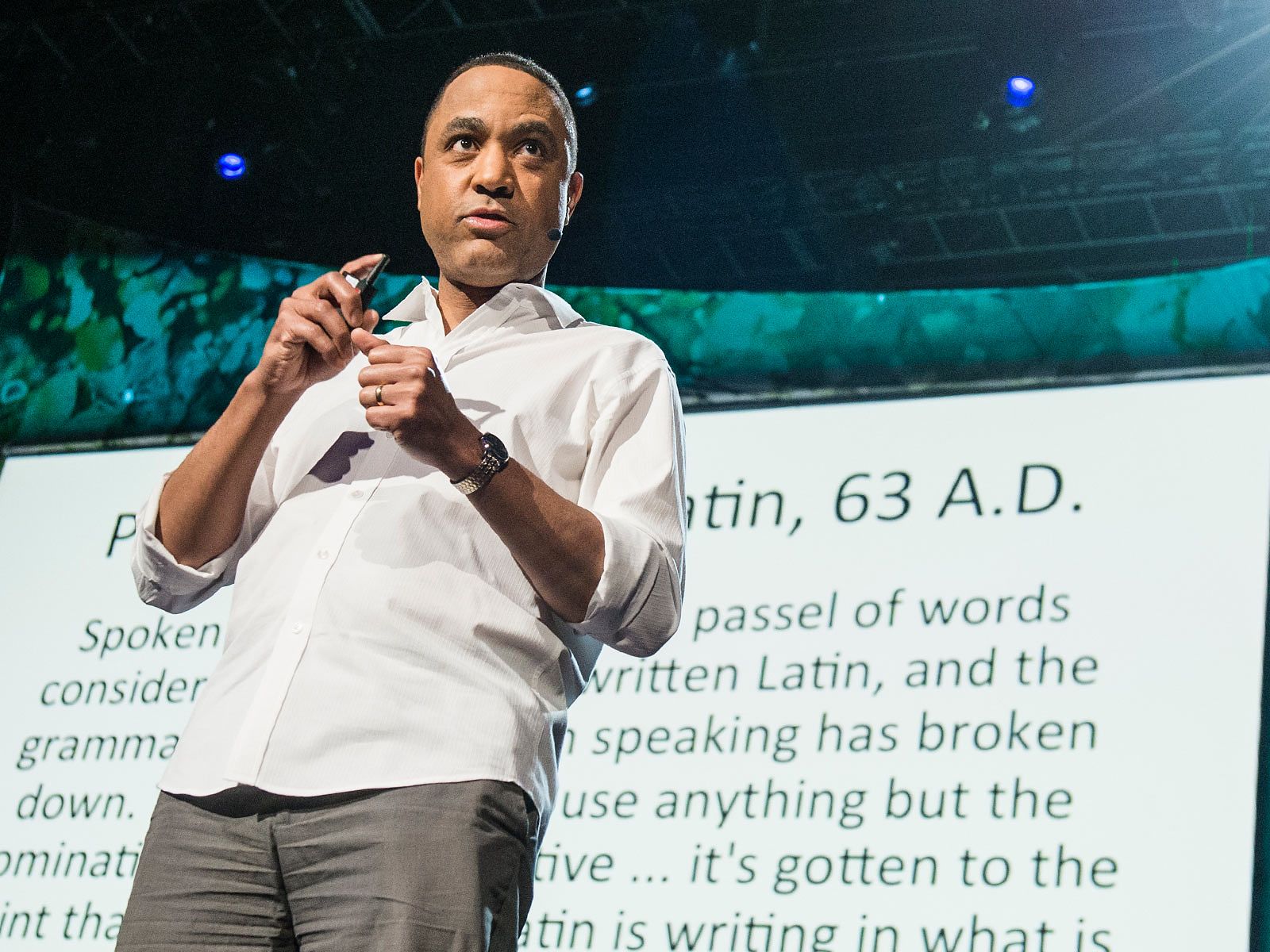And so, the way I'm thinking of texting these days is
that what we're seeing is a whole new way of writing
that young people are developing,
which they're using alongside their ordinary writing skills,
and that means that they're able to do two things.
Increasing evidence is that being bilingual
is cognitively beneficial.
That's also true of being bidialectal.
That's certainly true of being bidialectal in terms of your writing.
And so texting actually is evidence of a balancing act
that young people are using today, not consciously, of course,
but it's an expansion of their linguistic repertoire.
It's very simple.
If somebody from 1973 looked at
what was on a dormitory message board in 1993,
the slang would have changed a little bit
since the era of "Love Story,"
but they would understand what was on that message board.
Take that person from 1993 -- not that long ago,
this is "Bill and Ted's Excellent Adventure" -- those people.
Take those people and they read
a very typical text written by a 20-year-old today.
Often they would have no idea what half of it meant
because a whole new language has developed
among our young people doing something as mundane
as what it looks like to us when they're batting around
on their little devices.

